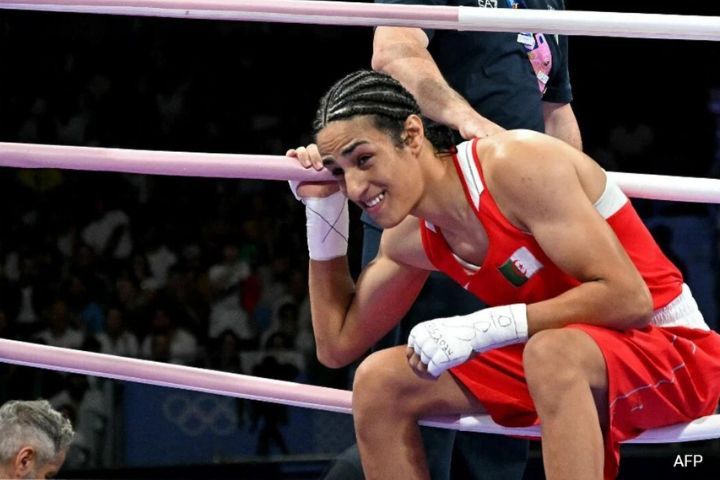American swimmer Riley Gaines recently called out Algerian boxer Imane Khelif after the latter earned her spot in the 66kg women’s boxing final at the 2024 Paris Olympics. Khelif will face China’s Liu Yang in the final bout. Gaines’ comments have reignited a heated debate about the inclusion of transgender athletes in women’s sports.
Riley Gaines Questions the Integrity of Women’s Sports
Gaines, a former University of Kentucky swimmer, has been a vocal advocate for the safety of women in sports and the exclusion of transgender athletes from women’s sports. She criticized Khelif harshly, referring to her as a “mediocre male” competing in a women’s event.
Gaines’ provocative statement, “Why have women’s sports at all if any mediocre male can compete in them?” has sparked a widespread conversation on social media and within the sports community.
Imane Khelif’s Controversial Path to the Finals
Khelif’s journey to the finals has been fraught with controversy. She gained significant media attention after Italian boxer Angela Carini refused to continue her bout against Khelif just one minute into their Round of 16 match. This incident brought to light a gender test from the 2023 World Championships in Delhi, India, which allegedly failed. The International Olympic Committee (IOC) later deemed the test arbitrary and lacking procedural integrity, but the damage was done—many observers labeled Khelif as transgender.
Despite the controversy, Khelif has shown remarkable resilience. She advanced to the final round of the event after defeating Janjaem Suwannaphennng with winning points. Her performance has been both applauded and scrutinized, making her one of the most talked-about athletes at the Paris Olympics.
The IOC’s Stance on Gender Tests
The IOC’s rejection of the gender test as lacking procedural integrity has not quelled the debate. The organization has been criticized for not having clear and consistent guidelines regarding the participation of transgender athletes.
This lack of clarity has led to varied interpretations and enforcement, fueling further controversy and division among athletes, coaches, and fans.
Reactions to the Paris Olympics Opening Ceremony
The controversy surrounding the Paris Olympics isn’t limited to the sporting events. The Opening Ceremony drew global attention for its extravagant displays, but one performance in particular sparked backlash. The ceremony included a re-enactment of Leonardo Da Vinci’s “The Last Supper” performed by drag queens. The organizers intended to showcase the act as a celebration of diversity and inclusivity. However, it was met with harsh criticism from various quarters.
Riley Gaines, who practices the Christian faith, expressed her dismay over the performance, calling it “satanic” and “blasphemous.” She lamented, “I feel heartbroken for the Olympic athletes (many of which are friends) who trained their entire lives to compete on that stage but will now have significantly fewer eyes watching and admiring because of the satanic, blasphemous display put on by the Olympic organizers.” Her sentiments were echoed by other notable personalities, including tech mogul Elon Musk, who also voiced his disapproval.
The controversy surrounding Riley Gaines’ comments and the Paris Olympics highlights the ongoing and complex debates about the inclusion of transgender athletes in sports. Gaines’ outspoken criticism reflects broader concerns about fairness and safety in women’s sports. As the discussion continues, it underscores the need for clear policies and open dialogue to navigate the challenges and ensure inclusivity and fairness in the sporting world.
The Paris Olympics, with its mix of extraordinary athletic performances and heated controversies, continues to captivate global attention, raising important questions about the future of sports and inclusivity.





GIPHY App Key not set. Please check settings